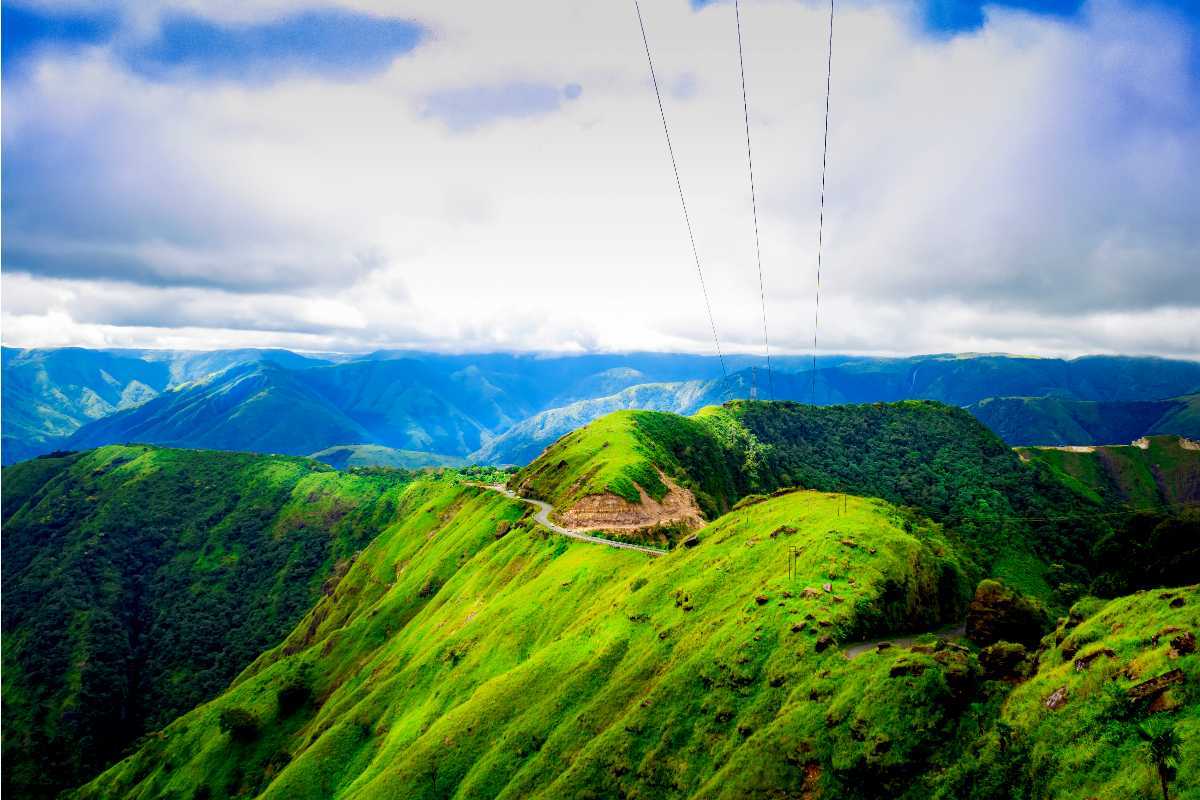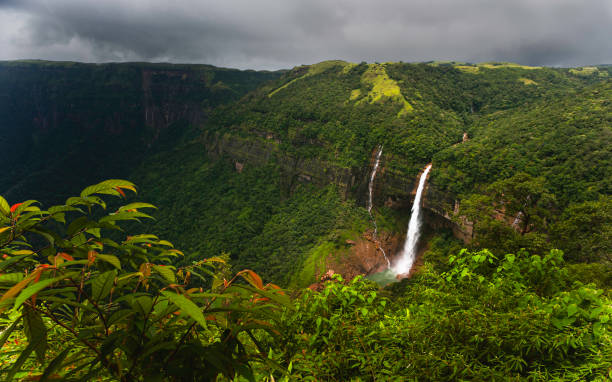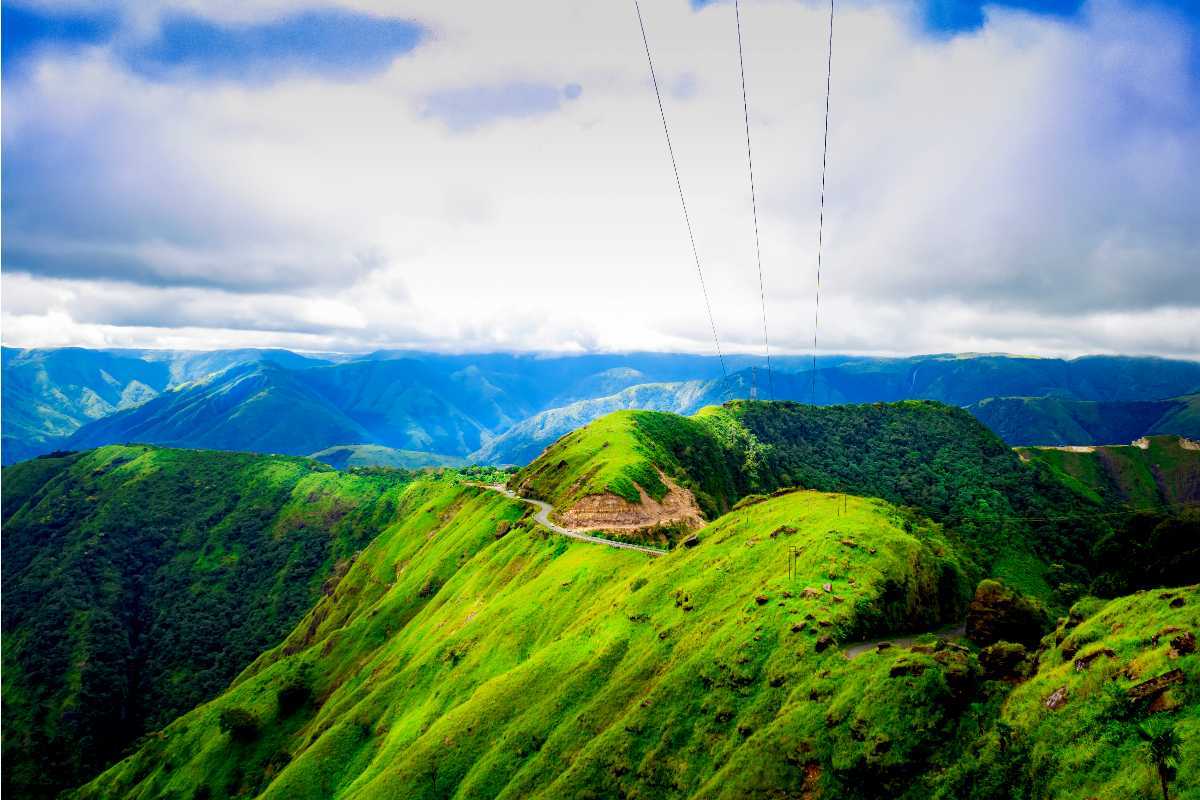

Northeast India—lovingly known as the Land of the Seven Sisters—is a treasure trove of diverse tribal traditions, colourful customs, soul-stirring music, and mind-blowing scenery. One of the best ways to experience the cultural heartbeat of this region is through the festivals of Northeast India. Offering a mindset-expanding mix of rituals, performances, and flavours, these celebrations embody the unity-in-diversity that defines the region.
If you're researching the list of festivals of North East India, you’re in the right place. Through this article, we introduce you to both iconic and lesser-known celebrations, all crafted to enhance your journey—whether you're into music festivals in Northeast India, looking for a complete North Eastern festival name list, or exploring famous festivals of Northeast India. With insights, tips, and updates, let's dive in!

*Check out our latest 5 Night 6 Days North East Tour plan
Known as the "Festival of Festivals," Nagaland's Hornbill Festival is one of the most well-known events in the area. Every December, all 16 of Nagaland's major tribes gather in Kisama village, which is close to Kohima.
Through traditional music, folk dances, colourful clothing, and native activities, visitors may experience the rainbow of Naga culture. With regional specialties like smoked pork, bamboo stalk curries, and millet beer available, the event is also a culinary feast. Adventurers can participate in traditional archery tournaments, bike parades, and rock concerts. The Hornbill Festival is an event in Northeast India that should be at the top of any traveller’s itinerary if they are keen to experience real tribal culture. Arbii Tourism guarantees well planned experiences that let guests take in Nagaland's tranquil scenery in addition to the celebrations.
The Ziro Festival of Music, one of India's most anticipated cultural events, takes place in the stunning Ziro Valley in Arunachal Pradesh. Typically taking place in September, this four-day outdoor festival draws independent musicians, music enthusiasts, and tourists from all over the world.
The combination of Ziro's breathtaking natural beauty and soulful music is what makes it so special. The location provides a memorable setting for live performances, encircled by foggy hills and rice fields. By supporting "leave no trace" policies and bamboo-based infrastructure, the event encourages environmentally beneficial behaviour.
The inclusiveness of this Northeast Indian event is what sets it apart; musicians from a variety of genres, including rock, electronica, and folk, play in accordance with regional Apatani customs. Travellers can enjoy hassle-free arrangements, from permits to cozy lodging, by making a reservation with Arbii Tourism, which will enhance the memory of their trip to Ziro.
During the Shillong Cherry Blossom Festival, Meghalaya's city of Shillong is covered with pink and white blossoms as fall approaches. Meghalaya offers the unique experience of autumn blooms, typically in November, in contrast to Korea or Japan, where cherry blossoms bloom in the spring.
The festival is a celebration of art, music, and local culture, and it's not just about looking at the flowers. Live music events, wine festivals, dance performances, and food vendors offering Meghalayan specialties are all available to visitors. Shillong is a place that will never be forgotten because of the cherry trees that line the streets and the undulating hills in the background.
This Northeast Indian event, which draws both local and foreign visitors, combines natural beauty with cultural diversity. In addition to taking in the splendour of the blossoms, Arbii Tourism offers guided excursions to Shillong, Dawki, and Cherrapunji.
Assam celebrates the Bihu Festival three times a year: in January for Bhogali Bihu, in October for Kongali Bihu, and in April for Rogoli Bihu. The most widely observed of these is Rongali Bihu, which commemorates the Assamese New Year.
The harvest season and the arrival of spring are marked with Rongali Bihu. They sing catchy folk tunes accompanied by the dhol (drum) and pepa (a buffalo horn pipe), dance the Bihu, and dress in traditional Mekhela Chadors and Dhoti-Kurtas. Bihu, one of the happiest festivals in Northeast India, celebrates Assamese agrarian heritage while also serving as a period of social cohesion. Travellers may experience the unparalleled warmth of Assamese hospitality, partake in village celebrations, and sample Assamese cuisine such as pitha and laru with Arbii Tourism.
The Garo tribe in Meghalaya celebrates the Hundred Drums Festival, also called the Wangala Festival, after harvest. This event, which is often celebrated in November, honours Misi Saljong, the Sun God, for providing the populace with a bountiful harvest.
The festival's high point is the pulsating drum beats, accompanied by coordinated dances performed by men and women wearing vibrant traditional clothing. The performances are accompanied by horns, bamboo flutes, and other native instruments, which create a captivating ambiance. This Northeast Indian festival is a cultural and spiritual event that highlights communal cohesion and thankfulness. Travellers can tour the Garo Hills and take part in the Wangala celebrations with special packages offered by Arbii Tourism.
Every November, Manipur celebrates the Sangai Festival, which is named for the state animal, the endangered Sangai deer. The event showcases indigenous sports like Thang-Ta martial arts, traditional dance forms like Ras Leela, and regional crafts, highlighting Manipur's rich cultural diversity.
Indulge in Manipuri food, see the floating Keibul Lamjao National Park, and engage in water sports on Loktak Lake. The event serves as a forum to promote ecotourism in the state as well as a cultural spectacle. Another well-known celebration in Northeast India that tourists shouldn't miss is the Sangai celebration. Arbii Tourism makes sure that your trip is meticulously organized so that you may experience Manipur's celebrations and tranquil natural beauty.
*Also check our latest 8 Night 9 Days Full Gangtok & North Sikkim Tour
In your quest for a truly comprehensive North Eastern festival name list, consider these lesser-known yet culturally rich events:
Magh Bihu / Bhogali Bihu (Assam) – A January harvest feast marked by bonfires (Meji), hut building (Bhelaghar), and traditional games like buffalo fighting.
Sekrenyi (Nagaland) – Celebrated from February 25, this purification festival of the Angami tribe marks New Year rituals and community cleansing.
BASCON Festival (Arunachal Pradesh) – A November three-day event celebrating the Galo tribe's art, dance, and culture at the confluence of two rivers.
Tendong Lho Rumfaat (Lepcha, Sikkim region) – An August festival commemorating ancestors’ escape from epic floods, celebrated with reverence and tradition.
Chapchar Kut (Mizoram) – A spring festival post-jungle slash-and-burn clearing, marked with traditional dances, folk songs, and vibrant attire.
Kharchi Puja (Tripura) – A ten-day July festival worshipping Lord Shiva and 14 deities, featuring fairs, culture, and local delicacies.
Kang Chingba (Manipur) – Manipur's version of Rath Yatra, an eight-day chariot festival held with much fanfare in Imphal.
Tuluni (Sumi Naga festival, Assam) – A harvest-reconciliation festival filled with folk rituals, feast, and communal unity celebrated in Tinsukia district.
Sun Rise Festival (Arunachal Pradesh) – Launching from December 29, 2025 to January 2, 2026, this is Arunachal’s new celebration at India’s eastern frontier, welcoming the New Year with sunrise views and regional culture.

Attending these festivals isn’t just sightseeing—it’s cultural immersion. Here's why they should be on every traveler's list:
Get up close with tribal traditions and tribal art
Experience music festivals in Northeast India that blend indie and folk in wild natural settings
Feast on authentic regional dishes—smoked pork, bamboo curries, pitha, larus, local wines
Participate in eco-conscious and awe-inspiring events like Ziro’s “leave no trace” ethos
Make genuine local connections with warm hospitality and unique stories
At Arbii Tourism, we meticulously craft travel experiences so you can focus on meaningful moments:
Curated itineraries based on festivals of Northeast India
Logistics handled—permits, accommodations, guided tours, and eco-friendly transport
Expert guidance ensures cultural understanding, respect, and unforgettable memories
January – Begin with Magh Bihu in Assam—celebrate harvest and sweet traditions.
February – Witness Sekrenyi in Nagaland—purification and New Year rites.
April – Join Rongali Bihu—Assam’s grandest New Year celebration.
September – Lose yourself at the Ziro Festival of Music—sound, scenery, and soulful connection.
November – From the blooms of Shillong Cherry Blossom Festival to Wangala and Sangai, immerse in layers of culture and colour.
December–January – Experience Hornbill Festival, then the brand-new Sun Rise Festival in Arunachal—end and begin your year with grandeur.
With Arbii Tourism, exploring the festivals of Northeast India is not just a trip—it’s a transformative encounter with traditions, sounds, and communities. Whether you're compiling a list of festivals of North East India or yearning to attend music festivals in Northeast India, our careful planning ensures you’ll witness the essence of this vibrant region.
Let us help you script your unforgettable festival journey—get in touch with Arbii Tourism today!
Yes, many educational and tourism websites offer downloadable Festivals of Northeast India PDFs. If you’re preparing for exams, guides often include summaries, festival calendars, and cultural notes. Arbii Tourism is also preparing handy downloadable guides for travelers.
On Wikipedia, you’ll find detailed information about individual festivals such as Hornbill Festival, Bihu, Ziro Festival of Music, and more. However, our guide brings all the essential details together in one place with travel insights, so you don’t need to jump across multiple pages.
The list of festivals of North East India includes both famous and lesser-known celebrations. Some key ones are:
Hornbill Festival (Nagaland)
Ziro Festival of Music (Arunachal Pradesh)
Shillong Cherry Blossom Festival (Meghalaya)
Bihu (Assam)
Wangala Festival (Meghalaya)
Sangai Festival (Manipur)
Other important ones include Chapchar Kut (Mizoram), Kharchi Puja (Tripura), Sekrenyi (Nagaland), and BASCON Festival (Arunachal Pradesh).
The Hornbill Festival of Nagaland is called the “Festival of Festivals” because it brings together all 16 major Naga tribes. It’s a vibrant showcase of traditional dance, music, cuisine, games, and crafts, held every December near Kohima. Tourists from across the world attend it, making it one of the most famous festivals of Northeast India.
For UPSC aspirants, knowing about the festivals of Northeast India is crucial for Art & Culture, Geography, and even Current Affairs. Festivals like Hornbill, Bihu, Wangala, and Sangai often feature in Prelims, Mains essays, and interview discussions as examples of India’s cultural diversity.
The Seven Sisters states—Assam, Arunachal Pradesh, Manipur, Meghalaya, Mizoram, Nagaland, and Tripura—each celebrate unique festivals. Together, they are referred to as the Seven Sisters festivals of Northeast India. Examples include Rongali Bihu (Assam), Ziro Festival (Arunachal), Sangai Festival (Manipur), Wangala (Meghalaya), Chapchar Kut (Mizoram), Hornbill (Nagaland), and Kharchi Puja (Tripura).
In Class 10 social science and English curriculum, festivals of Northeast India are often mentioned as examples of cultural heritage. Students may be asked to write short notes or essays on Hornbill, Bihu, and Wangala, or describe the role of festivals in preserving tribal traditions.
A good essay on festivals of Northeast India should:
Begin with an introduction to the cultural richness of the region.
Mention a few famous festivals (Hornbill, Ziro, Bihu, Wangala, Sangai).
Highlight their importance in community bonding, tourism, and eco-friendly celebrations.
Conclude with the idea that these festivals showcase the true spirit of India’s unity in diversity.
*Check our all latest Tour Package here!

copyrights © Arbii Tourism . all rights reserved. designed byTechno Imagine